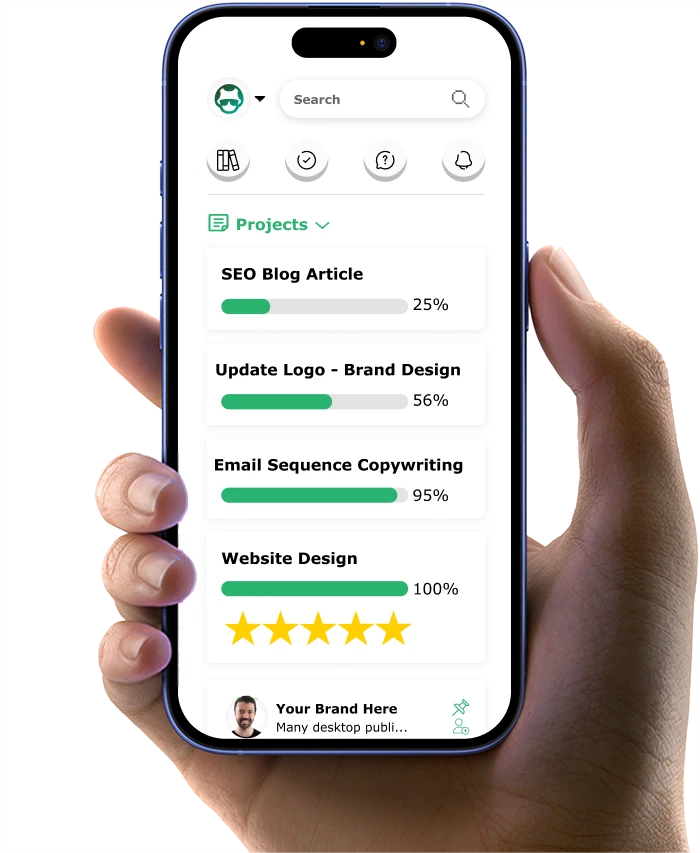Mixergy Mastermind: Where is it 2 years later?
https://www.youtube.com/watch?v=r5Is0wca8cE
In January of 2013 a call was put out for members of the Mixergy community to apply for a new mastermind group that was about to be formed.
It would be focused exclusively on bringing together a small group of five to six entrepreneurs who had the goal of building and scaling SaaS web businesses. Dozens applied and six were selected.
We began meeting once we week. At first, the timing for the meetings wasn't perfect and the discussions were slightly robotic since we were six strangers thousands of miles and three time zones apart talking on a video chat.
But we stuck with it and as we got to know each other better. The discussions became more natural and more effective for all members.
In the span of 24 months, the group has cumulatively grown from where we started at about $500,000 and, now, together we are on track to generate an estimated $3.5 million dollars in sales revenue in 2015.
Several months after Javier Sarda put the group together with Andrew Warner's help (thanks Andrew!), I was asked to take over the role as group leader. In that role, I was given a unique view point into each person's business beyond the weekly meetings and I was also given a unique opportunity to experiment with the group dynamic to see what would help move us forward.
Here's what I've learned about what makes a successful mastermind group, potential pitfalls, along with the insights of my fellow group members.
Important Note: Andrew and I are working on putting together five new mastermind groups. If you're interested applying, please fill out the Wufoo form here.
What works well
- Common purpose - Even if you're not exactly sure what it is, start with something because there has to be a concrete reason why you're going to be spending time together. It should be something each member of the group believes and sees value in. Check in on it every once in a while to make sure the wording doesn't need to be updated. It is also useful as far as bringing in new potential members to the group by acting as a filter: does the new potential member agree with the set mission of the group? What are his or her feelings on it? The common purpose of our group was initially "growing a successful SaaS business." Over time, as our businesses changed and we became friends, the new purpose became "enjoy the journey of getting rich with friends."
- Similar business size - One important observation is that, for better or for worse, as each member's business changes or grows, attitudes of individuals shift as well. It can be expected that if a member's business becomes very busy or goes through a rough patch, his / her general mood will often reflect this. That is why starting and working with members of a group who are at a very similar stage (startup, scaling business, mature and growing business, etc.) is key because everyone is seen as equals and it's easy for every member of the group to relate to one another.
- Rituals - This is something we were only mildly consistent about and that was my fault as the group leader. For example, reading an inspiring quote at the beginning of each meeting. This is important and helps build the habit of the group meeting and establish a general "jumping off" or ending point for each meeting.
- Structure - The structure (i.e. the "storyline" to how each mastermind meeting runs) is something that was always fairly fluid with our group because we would let it change naturally from quarter to quarter. Generally though, each meeting included updates on where each group member was and what their goal would be before the next meeting. Which brings us to...
- Goals - This is perhaps the one critical element that a mastermind would not be successful without. Without goals, you're just "hanging out." The attitude should be, yes, let's enjoy our time together, but let's get stuff done, let's push each other forward, let's hold each other accountable to the goals we set.
- Meeting up in person - In our case, meeting in person was always the exception rather than the rule since everyone lives far apart. This also made us appreciate the experience much more though when those in-person opportunities came up. There were at least two times where the majority of our group members met up in person. In other cases, there were a number of times where we had one-on-one meetings between group members.
- A group leader - In the case of our mastermind group, I've been the leader for the last year and a half. Without a group leader, the mastermind will be in imminent risk of dissolving or slowly "fading" away. It's important someone take over and own that resposibility: for making sure structure and some attendance standard is enforced, and that every group member is constantly growing and receiving value. Plus, the leader should be willing to push at times when other members might hold back out of politeness or a desire not to offend (see "Tip-toeing around emotions" below).
What doesn't work or harms the group dynamic
- Direct competition - Luckily, no one in our group was ever a direct competitor of one another. This worked to our advantage because everyone felt at ease and like they could be completely open with one another. If you're planning on forming your own mastermind group, make sure to avoid the potential pitfall of including two or more members in the group who stand in direct competition to one another. This would make for an awkward social dynamic, as well as discourage transparency. Many people in business are already paranoid. It'd be foolish to build on that.
- Self interest vs. Group interest - Pigs get fat, hogs get slaughtered as the experession goes. This is true especially for a mastermind group. Of course everyone wants to advance their own businesses and entrepreneurial careers, but it's key that each group member be as committed to "pulling up" his fellow group members as he is to advancing his own interest. After all, this creates a culture of goodwill and friendship among group members.
- Attendance issues - This is something our group has struggled with at times. After trying multiple tweaks to how we structure the meetings and the group, I don't believe there's a "perfect solution" to it. And it's unfortunate because everyone agrees that they get more value when more members are present. I believe the best solution in this type of case is to (1) ask members who are absent if they're receiving enough value from the group and understand the underlying cause. Then (2) if it's not something that can be resolved through conversation, the exclusivity and rule of mutual commitment between group members should be enforced. In other words, said member should be asked to leave the group.
- Businesses on Different levels - This is something that naturally occurs over time with any group of people with a common, external purpose (like growing their businesses). Some members excel and grow faster than others, there are outliers on both sides. For those who aren't advancing as fast as the rest of the group, it's important to show them that they are supported and to be willing to take extra time to help them work through whatever critical challenge they are currently facing. For those who are growing faster that the average, it's important to keep them engaged as well since they are most likely going to have some of the most actionable insights for how the other members of the group can grow faster and break through their current barriers.
- Tip-toeing around emotions - Our group has gotten better and better at addressing this over time. These days, we do our best to not just pay attention to the stated challenges of each group member, but to the emotions involved as well. Since our group is all guys, it's natural for most of us to not acknowledge what we're feeling (e.g. stressed, worried, or even something positive, like the feeling of accomplishment). It often seems easier to ignore a potential emotional reaction for fear that a member might be offended--but as long as it's done in a constructive way, it is important to address it for the benefit of the individual and the group overall.
Secret Ingredients to a Successful Mastermind
There is more more to be learned, but here are some of the "tools" and "levers" we utilize in our meetings.
- Continuous iteration and tweaks - As with your business, it's important to never be fully satisfied with the group. You should always look to get more out of it. This can mean adjusting how the meetings are structured and generally ensuring that the value to every member is maximized.
- Listening - I think part of the reason our group has stuck together this long -- despite the fact that each run very different businesses that are each at different stages of growth -- is the fact that we listen to each other.This has helped the make our weekly calls a relatively safe place to share without fear of criticism. And when there is push-back, it's done in a respectful, constructive manner.
- "Gloves Off" technique - This is a concept we invented and it's incredibly useful. "Gloves off" means, any member can volunteer for the option of sharing a general or specific problem he is struggling with. Then, after that, the group starts chipping away at the problem in a way that's meant to be direct and quickly getting to the root of the issue. In part this is used as an excuse to not be completely "nice" (but not destructively critical) to truly challenge the volunteering member, push them, and to hold them accountable.
- Friendly competition - Competition, when healthy, is one of the best triggers for facilitating progress within a team or within a mastermind group. Though we've only experimented briefly with this concept, I'm confident that it's one of the most often overlooked keys to overall group success. Setting goals is great. But feeling like your "competitors" are biting at your heels and there's some incentive to win? That's just more motivation which results in action.
- Focus - A recurring theme and a personal observation is that when ever a group member was solely focused on accomplishing one key goal is when he made the most progress towards achieving it. Often, they achieved it. For example, when Brennan set the goal to reach $X/ day for his course sales, he was singularly focused on it. He wasn't thinking about Planscope (his related but separate SaaS product). He was focused only on those things he could control that would lead him to that result. In my own experience, though I started out running a web marketing agency AND marketing my on SaaS product, I learned from Brennan and the rest of the group: once I focused all my energies solely on one goal for growing Growbo (our core business), everything started to get better.
- "Rock Tumbler" Attitude - Steve Jobs has this famous quote where he talks about a time where a neighbor of his shows him a rock tumbler. He would put some rocks into it and come back in a day or so to find the stones polished from the friction of rubbing against one another. "That’s always been in my mind my metaphor for a team working really hard on something they’re passionate about. It’s that through the team, through that group of incredibly talented people bumping up against each other, having arguments, having fights sometimes, making some noise, and working together they polish each other and they polish the ideas, and what comes out are these really beautiful stones." If you bring that same attitude to your own mastermind group, it's a recipe for the success of all members.
Individual insights and reflection
 Matt Ackerson, Founder, Growbo
Matt Ackerson, Founder, Growbo
- Business: Growbo specializes in website sales funnel and landing page design for small and growing businesses.
- Has the Mastermind group been valuable to you thus far? If so, why? Yes, and there are two main reasons. First, being an entrepreneur with a web-based business can be isolating since you're often working by yourself. In this case, I get to feel like I'm working along side a group of similar guys, with similar interests and goals. That feels good. Second, I've received an incredible amount of value from studying each of the group members and picking out the reasons for their successes and then incorporating a little bit of those lessons into my own habits and business.
- What advice would you give to other entrepreneurs about forming their own mastermind group? (e.g. pitfalls to avoid, ways to maximize value) I'm going to steal Mark's quote on this (see below), only because I think he's spot on: the more you give to the group, the more you get in return. Beyond that, I recommend finding people who are in it for the long term and therefore have a more realistic outlook that forces you to focus.
 Brennan Dunn, Founder, Double Your Freelancing
Brennan Dunn, Founder, Double Your Freelancing
- Business: Planscope.io and DoubleYourFreelancing.com focuses on helping freelancers charge more, earn more, and attract more clients.
- Has the Mastermind group been valuable to you thus far? If so, why? Absolutely. I have a bunch of "industry friends" who I chat with every once in a while, but the Mastermind group is a once a week *commitment* that allows me to keep accountable, help keep others accountable, and learn a few interesting tidbits and takeaway from the group.
- What advice would you give to other entrepreneurs about forming their own mastermind group?- Make sure you have a plan of action (e.g. round table status updates, then two people presenting.)
- Timebox the meeting. It should start and end promptly.
- Find people who are on a similar level to you. You want to be able to both learn and teach. One shouldn't outweigh the other.
- Come prepared.
 Mark Michuda, Founder, Call On The Go
Mark Michuda, Founder, Call On The Go
- Business: Call On The Go helps sales professionals save time with it's auto-dial and leads tracking features.
- Has the Mastermind group been valuable to you thus far? If so, why? YES! Sharing different tools, tactics, ideas to be successful is priceless. Having a team to ask questions to is huge.
- What advice would you give to other entrepreneurs about forming their own mastermind group?- The linchpin is the Mastermind group organizer. They will set the tone and expectations.
- Avoid being the nice guy. Its better to give constructive criticism.
- The more you give to your mastermind as far as contributing help etc the more you get in return.
 Brian Casal, Founder, Restaurant Engine & CasJam
Brian Casal, Founder, Restaurant Engine & CasJam
- Business: Restaurant Engine helps restaurants setup a professional website design for a nominal monthly fee. He also writes a weekly newsletter at CasJam.com
- Has the Mastermind group been valuable to you thus far? If so, why? Yes. It's great to have a group of like-minded fellow business owners to get feedback on new ideas I'm kicking around. I like how we each come from different backgrounds/industries but all have a strong business sense. And frankly - there is so much that I can't discuss with family and friends, because it would just bore them (they're not entrepreneurs)... Our Friday meetings are a good chance to talk shop with a group of people who do what I do.
- What advice would you give to other entrepreneurs about forming their own mastermind group?- I think agreeing on a structure early on and sticking to that is good.
- I like that our group is only 6 people, not more. I think if we had more people, it would be difficult to get everybody's input.
- Give it a few weeks before you decide whether to stick with it or not. I found that we all really started opening up after the 4th week or so, once we got to know eachother better.
- Be critical and demand criticism. I'm not here for a pat on the back. I'm here to improve my work and help the other guys improve.
 Jordan Gal, Founder, CartHook.com
Jordan Gal, Founder, CartHook.com
- Business: CartHook helps ecommerce businesses turn abandoned carts into recovered sales.
- Has the Mastermind group been valuable to you thus far? If so, why?Yes, very much. It's been valuable in a bunch of different ways. For business, it provides a group of people to get honest feedback, and to hear their input on your situation given their previous experiences. Just as importantly, if not more so, on a personal level it gives accountability, motivation, inspiration, camaraderie, friends, and the general feeling that there are others out there just like me that are in the same struggle.
- What advice would you give to other entrepreneurs about forming their own mastermind group? Just do it and figure out what works for you. My advice would be to make it regular, whether it be every week or every other week or whatever, but the consistency is important. That, and be honest with each other, which tends to happen naturally as you get to know each other and feel more comfortable opening up.
 Javier Sardá, Founder, Newsletter Breeze & cold email consultant
Javier Sardá, Founder, Newsletter Breeze & cold email consultant
- Business: Javier offers cold email consulting services. He is also building his SaaS product, Content Breeze.
- Has the Mastermind group been valuable to you thus far? If so, why? It has been very valuable for me. Listening to problems and solutions of different members which are similar to problems I have or will have, or matters that cross my mind, is really valuable. It is a great way to learn from the experience of others. It is also a great place to hear specific advice related to my business or approach and validating the uncertain aspects about it. Seeing week by week how things progress with each person and understanding how the different marketing plans we are doing are working out is also very useful.
- What advice would you give to other entrepreneurs about forming their own mastermind group? The more similar the businesses are, the better, since all the information discussed would be applicable. At the beginning of the mastermind group, ask all members what they want to get out from the mastermind group and agree on the format of each meeting. Revise this every 2-3 months to get feedback and make appropriate changes to maximize the value that all members get.
 Russell Kommer, Founder, eSoftware Associates
Russell Kommer, Founder, eSoftware Associates
- Business: eSoftware Associates is a premier provider of software consulting service to Fortune 500's and medium sized businesses. Their flagship brands include ExcelHelp.com and SharepointProgrammer.com.
- Has the Mastermind group been valuable to you thus far? If so, why? Yes, incredibly valuable. Specifically with marketing tactics changing as fast as they do today, I have found discussing current up-to-date strategies and hearing past experiences from other members has allowed our businesses to move forward without repeating much of the same minutia that others had (and vice-versa).
- What advice would you give to other entrepreneurs about forming their own mastermind group? (e.g. pitfalls to avoid, ways to maximize value) It’s my opinion that successful groups will have a decent mix of business owners who focus on different products/services/industries but have similar goals & aspirations. This should entail a high quality service, a scalable and controlled growth model and product/services that provide extreme value to customers.
Conclusion
A mastermind group is only effective if it's working to propel all members forward, helping them to challenge their assumptions, work through problems creatively and constructively, and resulting in all members growing together and helping one another.
If you're interested, Andrew and I are putting together 5 new mastermind groups made up of members of the Mixergy audience.
Who we're looking to work with:
- Clear business model (even if you're still a startup)
- Business shows substantial room for growth
- Positive attitude, eager to contribute as well as receive constructive feedback
- Ability to problem solve in your own creative, unique way
- Large personal network is a plus but not a requirement
- Engineering background and/or professional sales experience is a plus
You can click the link here to apply.
=====================
About the Author:
Matt Ackerson is the Founder & CEO of Growbo.com as well as the group leader of the first Mixergy Mastermind. He and the Growbo Team publish weekly resources to help growing businesses create an effective sales funnel that generates more leads and more sales. In his free time he writes fiction, runs, eats Thai food, and kicks butt in ping pong.













